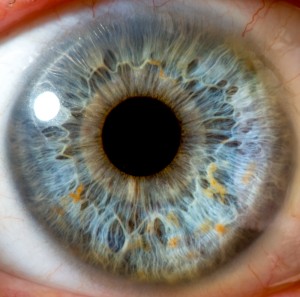
In many cases, glaucoma not only takes away light, it also takes away the chance for people to live a normal life and to do things that they usually do. Glaucoma is a thief in the night. It steals away sight in the most unexpected times. Patients will only discover that they are indeed suffering from it once they feel the subtle symptoms.
This is what writer and avid reader Yolanda Bartolome, 73, found out the hard way.
Yolanda first found out that she had glaucoma in 1983. She had an unbearable migraine and her eyesight blurred and even showed rainbows around light. When she finally consulted an ophthalmologist about her discomfort, she was greatly aghast when she was told that her eye pressure skyrocketed to the dangerous levels and that she had already the beginnings of glaucoma.
Yolanda was an executive assistant in the Department of Labor and Employment. On the side, she wrote articles for different publications on a wide range of subjects.
Because of glaucoma, she had to stop doing the things she loved to do.
Thousands of Filipinos are like Yolanda. It gradually takes away not only vision but also a life led normally.
Glaucoma is the country’s leading cause of bilateral permanent blindness.
It is a severe eye disease that gradually steals vision. Glaucoma damages the optic nerve, which is what connects the brain to the eyes, and leads to progressive, irreversible vision loss. It does not have any painful or apparent symptoms. It attacks when you least expect it. Patients may have it and not know it. Once diagnosed with glaucoma, regular and lifelong follow-up check-ups are important.
She met the doctor who helped her in her fight against glaucoma, Dr. Jose Ma. “Biboy” Martinez, one of a few ophthalmologists in the country specializing in glaucoma care. Dr. Martinez is the current vice president of the Philippine Glaucoma Society (PGS).
For Yolanda’s case, she had to undergo two separate surgeries in 2006 conducted by Dr. Biboy. Both eyes could not be treated the same way. Her right eye bothered her more. Today, she wears a pair of specialized eye glasses to do her normal tasks with a little less difficulty due to glaucoma.
Glaucoma sufferers like Yolanda may show some of the following risk factors: eye pressure, family history of glaucoma, age over 45, previous eye injury, chronic steroid use, diabetes mellitus and Asian parentage.
Early detection is better than cure for glaucoma. Glaucoma is prevented by having regular eye exams. If vision is blurry or if there is eye pain, see an ophthalmologist or eye doctor right away.
Glaucoma treatment aims to preserve vision through any of the following: regular eyedrops, laser surgery and conventional surgery.
Filipinos should not take an apathetic attitude towards ridding the country of the incurable glaucoma. We need an aggressive approach against glaucoma and it starts with every Filipino according to the experts of the PGS, an internationally recognized leader in providing quality glaucoma care in the Philippines.
In partnership with Allergan, PGS is aggressively fighting to rid the country of glaucoma through education, exchange of ideas, research and publication. Its vision is No Filipino will ever go blind from Glaucoma.
Philippine Glaucoma Society along with globally recognized multi-specialty care company Allergan brings scientific excellence and rigor in delivering leading products that addresses glaucoma. Allergan goes beyond providing education and information. With the highest level of integrity, Allergan helps patients understand the choices available to them and make well-informed treatment decisions with their doctors.
Today, Yolanda tries to live her life as normally possible despite the onset of glaucoma. She reads as much as she can and spends time with her husband, her daughter, and her two grandchildren as much as possible. Because she and her doctors were able to detect glaucoma early, she was able to avert any major damages in the years past. She can still see. She can still do some of the things that she normally does except writing, which she admits she enjoyed doing and is constricted from doing it again because of the dreaded incurable sickness.